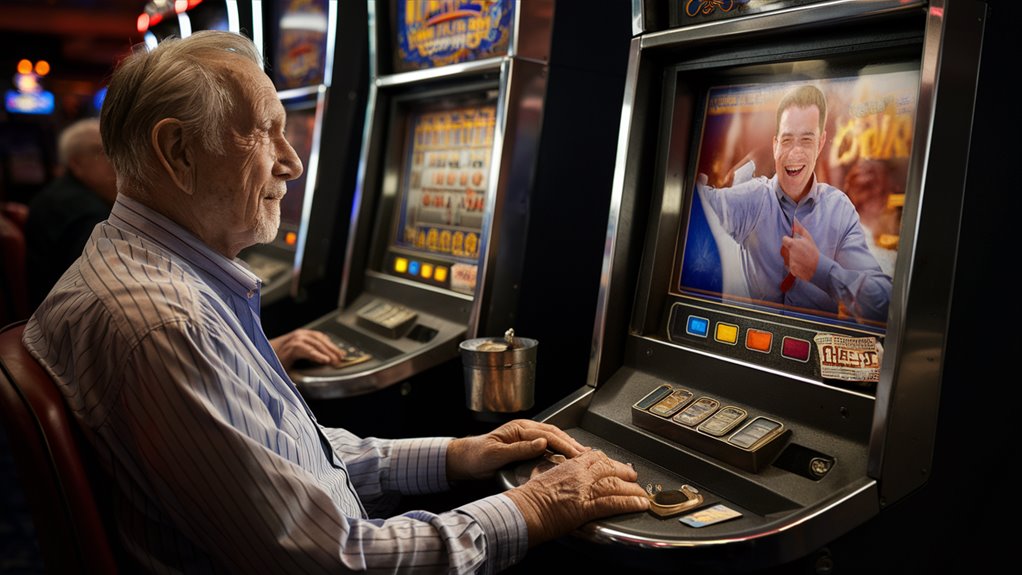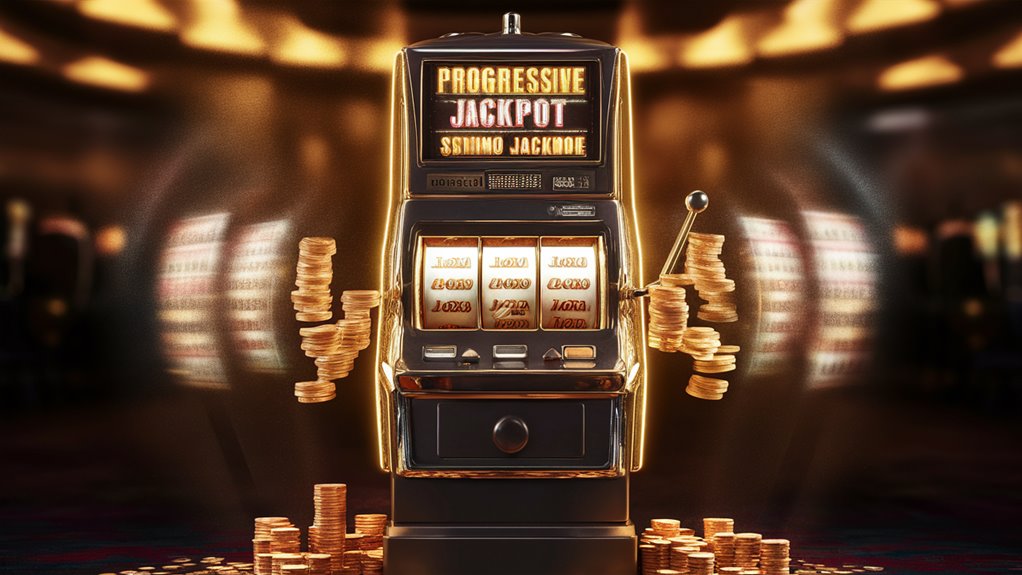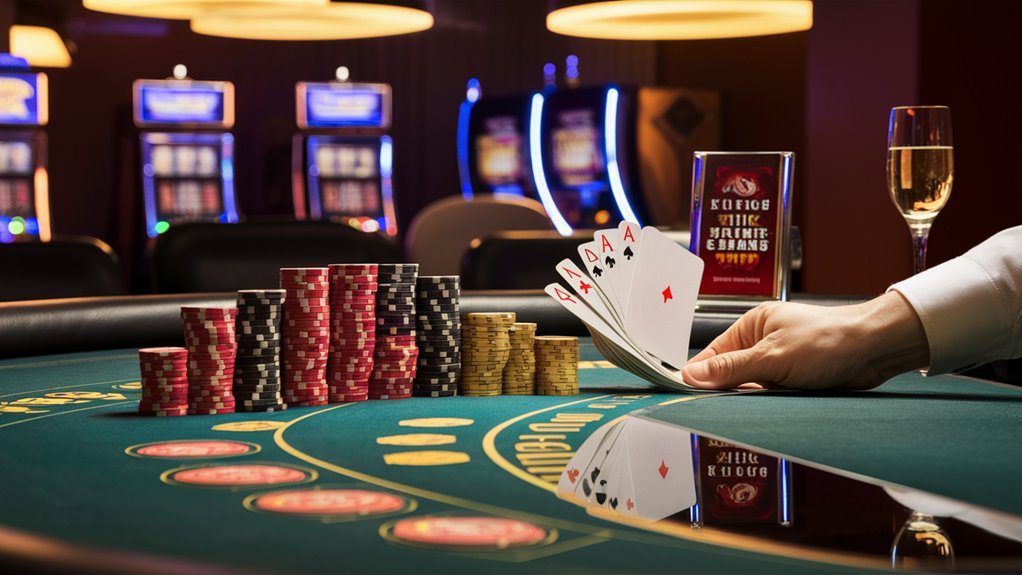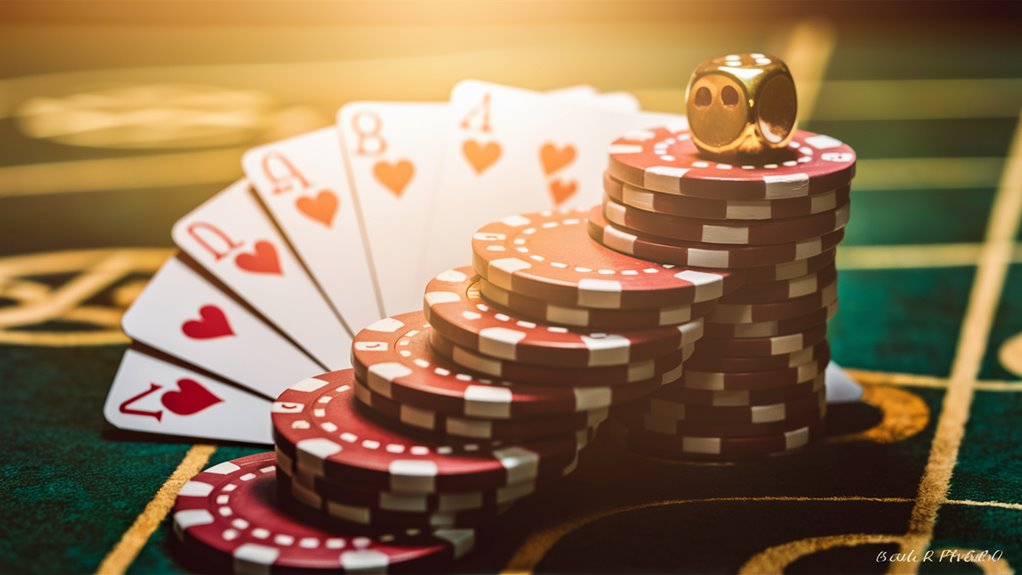Why Gamblers Look Past the Odds: The Mind Game Behind Bets

The Brain Science of Betting Addictions
Brain triggers are key in why gamblers often ignore clear odds. Studies show close losses spark a brain chemical dopamine, just like wins do, while the hope of winning lights up brain joy spots by 200-400%. These strong chemical effects beat logic.
Biases in Thinking and Memory Twists
Picking what to remember has a big effect on betting moves, as players sharply recall wins and hardly think of losses. This creates skewed views of success that push them to keep betting after heavy losses. The feel of control hits 76% of steady gamblers, making them wrongly think they can sway random outcomes.
People and Place Effects
Casino setups craftily use mind tricks through design choices. Elite Gamblers boosts betting by about 68%, with gamblers swayed by others around them and the race to win. These outside pushes mix with inner biases for a strong mental hold that stops good odds judgment.
Brain Self-Tricks to Keep Betting
Regular gamblers craft mental excuses to keep betting, even knowing the real odds. The mix of brain rewards, thought bends, and place effects weave a thick web of mind needs that drown out sound judgment and odds checking.
The Mind Game with Narrow Losses
Deep Dive into the Brain and Almost Wins in Betting
Brain Reactions to Near Wins
Brain scan studies from the University of Cambridge show that almost wins in bets work up the brain like true wins do. As gamblers see two alike signs with the third barely missing, the brain lets out dopamine, almost like in a win.
This brain response is key to why betting stays strong despite money losses.
Planned Almost Wins in Games
Game makers purposely add almost-win events in their designs.
Studies say that slot devices are set to show near wins as much as 30% of the time, well over plain chance. Reports point out these planned near wins can bump up lasting play by up to 30%, really shaping player moves.
Effects in Different Betting Types
Lottery Games and Near Win Moves
The mind impact of near wins changes with the type of bet. Lottery folks who pick numbers that almost match the winning mix tend to want to play more than those with far-off numbers.
This mind trick can kick-start betting addictions just as real wins do, marking near wins as a big factor in can’t-stop betting habits.
How Slot Machines Pull You In
Game builders aim their machines to max out near wins, making a strong mind hook that keeps players in.
The careful place of icons and set odds make an ideal set for these almost wins.
Grasping the Chase After Losses and Bets Led by Emotions

The Mindset of Chasing Losses
Chasing losses is when gamblers try to win back money through more betting.
Studies suggest this move comes from deep emotions and mind hangs, as money losses cause huge stress that mess up clear mind work.
What the Brain Does When Chasing Losses
During chasing loss times, the brain goes through big shifts:
- More stress hormone grows
- Less front brain power struggles
- Worse at gauging risks
- More quick to react
Stats and Study Results
Study facts give strong cases on problem betting moves:
- 75% of people with gambling issues show chasing losses
- Only 15% of just-for-fun gamblers do this
- Brain scans show more action in the fear part during losses
- Thinking parts of the brain drop
The Risky Spin Cycle
Chasing losses makes a loop where emotion-led choices keep getting worse.
This mind loop shows through:
- Up betting sums
- More betting times
- Less smart thinking
- Growing money losses
The mix of mental stress and thought hangs makes a hard circle to break, needing expert help and planned steps to recover.
Getting Why Gamblers Pick What to Remember: The Psychology of Wins and Losses
The Weight of Memory Picks in Betting
Picking memories is a big thought hang among gamblers, truly click here shaping how they see their betting runs.
Players often strongly think of and stress winning times while not thinking much of losses, shaping a wrong view of their win rate.


